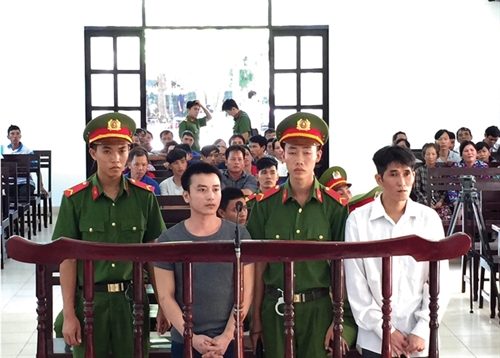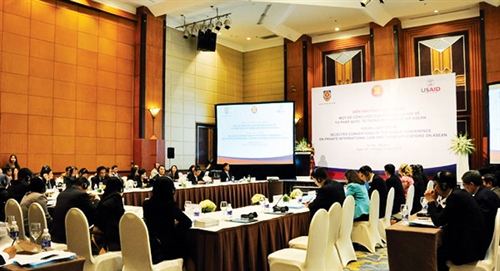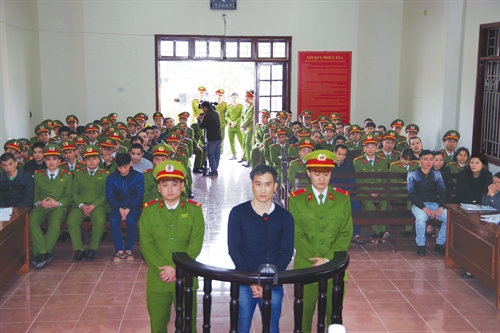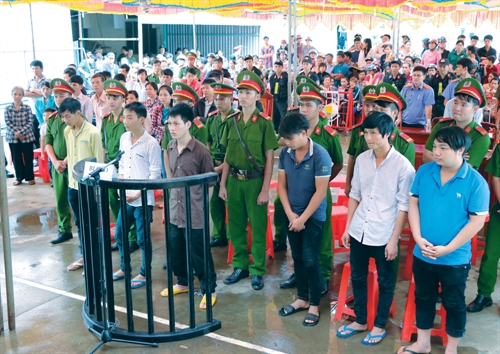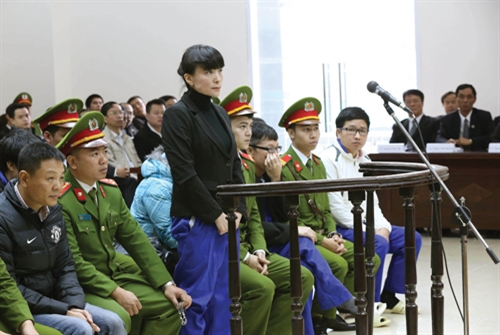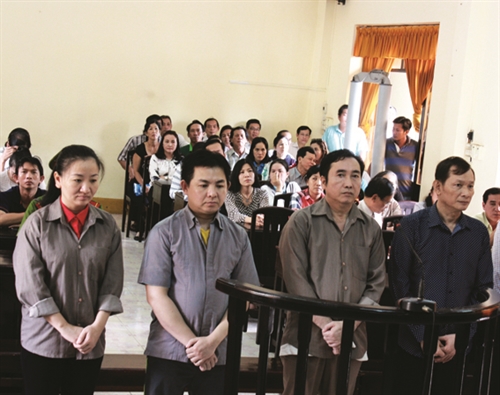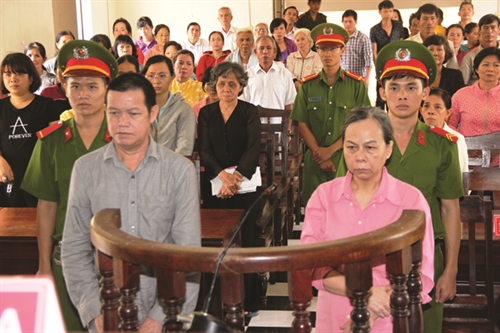Hoang The Lien
Former Deputy Minister of Justice
Vietnam is now a contracting state to seven out of nine core international instruments on human rights[1] and has been actively implementing them. Under the recent universal periodic review, the United Nations Human Rights Council (UNHRC) has appreciated the achievements recorded by Vietnam in realizing its commitments on human rights. It has also made hundreds of recommendations for Vietnam to better protect and guarantee human rights, 182 of which are accepted by the country. In criminal justice, 17 recommendations of the UNHRC are directly related to the formulation and revision of the 2015 Penal Code (the Code).
One of the basic guidelines for revising the Code is improving criminal policies to guarantee and promote the exercise of human rights and democratic rights of citizens enshrined in the 2013 Constitution in accordance with the above recommendations.
This article highlights the contents of the Code and its recent changes aimed at guaranteeing the protection of human rights and basic citizens’ rights and the exercise of civil and political rights.
First, the provisions on conditions for punishment have been changed to limit the imposition of imprisonment penalty and expand the application of non-custodial penalties.
Fines are imposed as the principal penalty not only for less serious crimes but also for serious crimes (Article 35.1.a), Particularly for crimes infringing upon the economic management order, the environment, public order and security and some other crimes, fine may also be imposed as the principal penalty for very serious crimes (Article 35.1.b). Compared to the previous Penal Code, the Code has 30 more provisions imposing the fine penalty.
The Code contains new provisions on non-custodial reform. Accordingly, if a person sentenced to non-custodial reform has no job during the period of serving this penalty, he is obliged to perform community service during this period for no more than four hours per day for five days per week. This penalty is not imposed on pregnant women, women nursing children aged under six months, elderly and weak persons, persons suffering a fatal disease, or persons with severe or particularly severe disabilities (Article 36.4).
The Code also stipulates that termed imprisonment will not be imposed on a person who unintentionally commits a less serious crime for the first time and has a specific place of residence (Article 38.2).
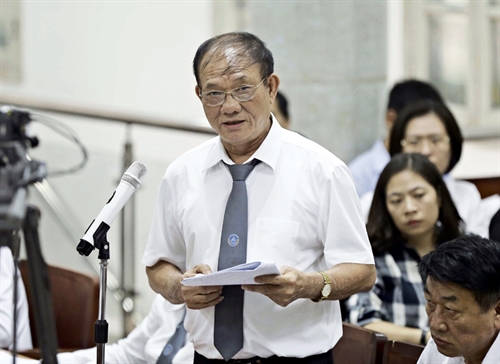 |
| Lawyer Nguyen Dinh Hung defends the civil plaintiff of Ocean Bank in Ha Van Tham and his accomplices’ case__Photo: Doan Tan/VNA |
Second, a separate chapter (Chapter IV) is added to spell out seven cases of exclusion from penal liability, including unexpected events, having no penal liability capacity, legitimate self-defense and urgent circumstances, which were specified in the previous Code, and causing damage while arresting offenders, risks in research, testing or application of scientific, technical or technological advances, and execution of orders of commanders or superiors.
Third, the Code makes fresh provisions on early conditional release, which exonerate a convict from serving the remaining imprisonment term if he (i) has committed the crime for the first time; (ii) has made progress and shown good reform; (iii) has a specific place of residence; (iv) if convicted of a serious crime, very serious crime or particularly serious crime, has been entitled to reduction of the imprisonment term and has served at least half of his imprisonment term or at least 15 years, for lifers who are commuted to termed imprisonment; and (v) has completely served the additional penalty being payment of fine, compensation for damage and payment of legal costs.
If the convict is a war invalid, diseased soldier or a member of a fallen hero’s family or of a family with meritorious service to the revolution, a person aged 70 years or older, a person with severe or particularly severe disabilities, or a woman rearing a under-36-month child, the early release condition is lesser, under which he or she must have served at least one-third of the imprisonment term, or at least 12 years, for lifers who have been commuted to termed imprisonment.
Should a person who is released ahead of time intentionally breach his obligation or be administratively sanctioned for the second time during the probation period, the court may cancel the decision on his early conditional release and send him back to the prison to serve the remainder of his sentence.
If committing a new crime during the probation period, such person will have to serve the penalty under the new judgment plus the unserved part of the imprisonment sentence under the previous judgment.
Early conditional release will, however, not be granted to persons convicted of the crime of infringing upon the national security, terrorism, undermining peace, crime against humankind or war crime, and to those sentenced to death but later commuted to life imprisonment (Clauses 2 and 3, Article 66).
Fourth, the provisions on automatic expungement of criminal records have been revised to create favorable conditions for convicts to stabilize their life and reintegrate into the community. Specifically, a person exonerated from penalty or sentenced for unintentional commission of a less serious crime or serious crime will not be regarded as having criminal records (Article 69.2). The time limit for expungement of criminal records of a convict is shortened to one year, if he is subject to warning, fine, non-custodial reform or suspended sentence, and to five years, if he has been sentenced to imprisonment of over 15 years, life imprisonment, or death then entitled to commutation. The date of criminal record expungement is the date the convict completely serves the principal penalty or the date of expiration of the probation period under the suspended sentence, and the additional penalty, and has complied with other decisions under the judgment and committed no new crime (Article 70).
The procedures for automatic expungement of criminal records are also simplified, no longer requiring a certificate of criminal record expungement granted by the court. Criminal record expungement decisions are only required for persons sentenced for the crimes infringing upon the national security or undermining peace and war crimes after they have completely served the principal penalty or probation period under suspended sentences, or when the statute of limitations for judgment execution has expired. The condition for the issuance of such decision by the court is that they commit no new crime within three years in case their principal penalty is warning, non-custodial reform or imprisonment of up to five years; within five years if they have been sentenced to imprisonment of between over five years and 15 years, or within seven years if they have been sentenced to imprisonment of over 15 years, life imprisonment, or death then entitled to commutation (Article 71). Special cases of criminal record expungement are provided in Article 72 in order to encourage ex-convicts to well reform themselves and make a great feat.
Fifth, regarding the group of crimes against human life, health, honor and dignity (Chapter XIV), the crime of using persons aged under 16 years for the purpose of pornography (Article 147) is added and a more severe penalty is imposed for the crime of refusing to rescue people from a life-threatening circumstance, resulting in multiple deaths (Article 132).
Sixth, the group of crimes infringing upon human freedom, democratic rights and freedom of citizens (Chapter XV) is added with the crimes of infringing upon citizens’ right to vote when the State organizes a referendum, falsifying referendum results, and infringing upon citizens’ right to freedom of speech, freedom of press, access to information or demonstration (Articles 160, 161 and 167). Heavier penalties are also imposed for six crimes in this group, including infringing upon other persons’ places of residence; infringing upon the confidentiality or safety of mails, telephones, telegrams or other forms of private communication of other persons; illegally forcing civil servants or public employees to resign or illegally sacking employees; infringing upon the citizens’ right to assembly or association; infringing upon other persons’ right to freedom of belief or religion; and infringing upon the right to complain or denounce (Articles 158, 159, 162, 163, 164 and 166).
The death penalty is abolished for more crimes and the conditions for its imposition are stricter. The crimes that are no longer punishable by death include carrying out banditry activities (this crime itself is abolished), plundering property (Article 168), producing or trading in counterfeit food, foodstuff or food additives (Article 193), illegally stockpiling narcotics (Article 249), illegally appropriating narcotics (Article 252), destroying important national security works, establishments and facilities (Article 303), disobeying orders (Article 394), and surrendering to the enemy (Article 399).
In addition to pregnant women or women nursing infants under 36 months old, the Code specifies two new categories of persons who will not be executed. They include persons aged 75 years or older when committing a crime or being adjudicated, and persons sentenced to death for embezzling property or taking bribes who, after being sentenced, voluntarily return at least three-quarters of the embezzled property or taken bribes and actively cooperate with the authorities to detect, investigate or handle crimes, or achieve a great feat (Article 40.3).
To guarantee the rights of vulnerable people, the Code has many amendments to protect women from any kind of violence and discrimination and introduces new policies to better protect children and vulnerable and disadvantaged groups, and better guarantees the rights of the elderly and people with disabilities.
Specifically, Article 36 on the non-custodial reform penalty stipulates that pregnant women, women nursing under-6-month babies, elderly and weak persons, persons suffering fatal diseases, or persons with severe or particularly severe disabilities are not obliged to perform community service. Article 51 considers having severe or particularly severe disabilities as a penal liability-extenuating circumstance, in addition to being pregnant or aged 70 years or older.
The Code also considers any crime against a vulnerable person as a penal liability-aggravating circumstance. For example, Article 168 on plundering property adds the aggravating circumstance of committing a crime against a person aged under 16 years, a woman who is pregnant, an old and weak person or a person without self-defense ability, which may result in an imprisonment term of up to 15 years.
Chapter XII on juvenile (under-18) offenders also has new provisions to better protect juvenile offenders. For example, Article 91 adds the principle that the handling of juvenile offenders must ensure their best interests and aims mainly at educating and helping them redress their mistakes, develop healthily and become useful citizens. The handling of these persons must take into account their age, their awareness about the social danger of their offenses, causes and conditions for committing offenses. This Article also lists cases where a juvenile offender has many extenuating circumstances and voluntarily remediates most of consequences of his crime and therefore can avoid bearing penal liability.
Another principle laid down in the Code is that the court may impose penalties lighter than life imprisonment against juvenile offenders only if deeming that the exoneration from penal liability and application of other measures cannot ensure educational and deterrent effects.
The Code also stipulates 28 very serious or particularly serious crimes which persons from full 14 years to under 16 years old may only bear penal liability for, such as murder, rape, rape against persons aged under 16 years, forcible sexual intercourse with persons aged from full 13 years to under 16 years, plundering property, kidnapping in order to appropriate property, etc., and for acts of preparing for murder or plunder.
It also adds such measures as reprimand and community-based conciliation and education to be applied to juvenile offenders who are exonerated from penal liability.-

